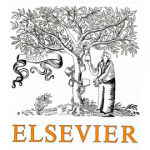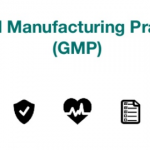Fabrication, falsification and plagiarism are the usual suspects of scientific misconduct.
More common are lesser forms of research misbehaviour, also known as ‘sloppy science’. This course highlights the most frequent research misbehaviors and their impact. The aim is to raise awareness and foster responsible conduct of research amongst young scientists.
- Core values of Good Scientific Practice (GSP)
- Famous examples of Fabrication, Falsification and Plagiarism (FFP)
- Other forms of research integrity breaches
- Impact and consequences of questionable research practices (QPR)
- Factors that might lead to QPR
- Guideline for responsible conduct of research
- Good Laboratory Practice
- Good Manufacturing Practice
Methodology
Our courses are geared towards adult learning and use participatory approaches. The trainer encourages participants to add their experience and knowledge to the course content. Topics covered are backed by real examples and relate to the participants’ field of research.
Before the course, participants can submit specific questions and their own presentation examples by email. The course content will be adjusted to the specific needs and requirements of the participants.
Participants are handed out reading material to be discussed during the course as well as a course summary with their achievements.
Course duration: 1 day or 2 consecutive days (9am – 5pm)
Number of participants: 8-12
Trainer: Dr. Jo Havemann
Contact us for a custom proposal
The course can be aligned to your requirements regarding duration, form and content.
Digital Services
Retraction Watch is a database of retractions, expressions of concern and related publishing events
Plagiat.pl is a software supporting verification of text authenticity. More than 200 Polish universities check their students’ theses in our antiplagiarism system.
Strike Plagiarism provide fast and affordable plagiarism-detection tools, mostly for Universities, but also for High Schools and Publishing Houses.

In an attempt to secure and protect unbiased Open Science in Europe our team member, palaeontologist and Open Access activist Jon Tennant has taken another stand against Elsevier. Elsevier is the biggest and most influential scientific publisher and at the same time probably the most profitable business worldwide. To get an overview of the cascade of events and some background on the story, read the following articles: Tennant J (June 28, 2018), Elsevier ...
Read More

On his blog Green Tea and Velociraptors our team colleague Jon Tennant questions the ethics of the widely practiced copyright transfer from authors of peer reviewed articles that are based mostly on public funding to commercial publishers. The following is an excerpt from
Jon's original blog post. […] Typically, the process of copyright transfer for research articles happens something like this:
- Researchers submit a manuscript to a journal for peer review.
...
Read More

For a 2-day course on Good Manufacturing Practice earlier this week, I prepared the following presentation. The lecture started with a recap of Good Scientific Practice, followed by Good Laboratory Practice as prerequisites for reliable and transparent manufacturing in pharmaceutical, medicinal, food and agricultural industries. from
Insights and feedback from the participants ranged from
"Why didn't we have this lecture before ...
Read More

Originally published in
naturejobs.
The March for Science turned a spotlight on the importance of research. But it won’t have a lasting effect unless we improve science communication, says Judith Reichel. On Saturday, April 22nd, myself and an estimated 11,000 other science supporters marched in Berlin. The event was part of the global “March for Science” that took place in over 600 cities worldwide. While the March here and everywhere ...
Read More

In his blog Green Tea and Velociraptors, describes his approach to writing a peer review. […] I remember the first time I got a review request in the second year of my PhD. An Editor emails you out of the blue, and asks you to provide your expert commentary on research by your colleagues. EXPERT COMMENTARY. BUT I’M NO EXPERT. PANIC. Well, you are an expert to some degree. Which is why ...
Read More






